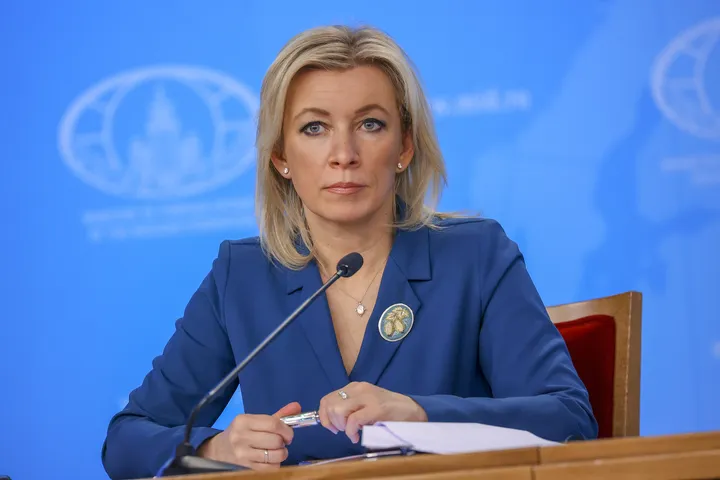Last month, Israeli Prime Minister Benjamin Netanyahu was so upset with the military leadership that he sneeringly reminded everyone that Israel was a country with an army, “not an army with a country”.
The reason for Netanyahu’s snide comment was the military’s decision to declare a “tactical pause” in the southern city of Rafah to ostensibly help deliver humanitarian aid in Gaza—a decision the Israeli forces apparently made without informing the prime minister.
The public dispute was soon followed by the spokesperson of the Israeli army publicly questioning Netanyahu’s war strategy that aims to “eliminate” Hamas, which governed Gaza until last October when Tel Aviv began bombing the besieged territory, killing more than 39,000 people, mostly women and children.
“This business of destroying Hamas, making Hamas disappear—it’s simply throwing sand in the eyes of the public,” Rear Admiral Daniel Hagari said in a TV interview.
“Hamas is an idea, Hamas is a party. It’s rooted in the hearts of the people—whoever thinks we can eliminate Hamas is wrong,” the army spokesperson said, in stark contrast to the stated position of the Israeli prime minister, who wants to continue the bloody war until the complete destruction of the “military and governing capabilities” of Palestinian resistance group.
The difference of opinion between the Israeli government and its military, expressed publicly from both sides, is highly unusual and reflective of a deeper conflict amid the bloodiest war in many decades.
“The debate in the Israeli elite about a possible deal with Hamas to free the hostages is not a clear cut civil-military divide, as some ministers seem to be on the same page as the defence establishment,” Dr Ehud Eiran, associate professor of international relations at Israel’s University of Haifa, tells TRT World.
The ministers include the minister of defence, ultra-Orthodox Shas party leaders, and even some Likud politicians.
There have been other instances in Israeli history when elected officials and the military had “conflicting policy preferences”, he says, while mentioning the weeks leading up to the Arab-Israeli War in 1967.
The military always abides by the chain of command and ultimately accepts the directive of the elected leaders, he says.
Waging an unending war
There’s growing scepticism from military analysts and Israeli observers about the achievability of the stated goal of Hamas’s complete destruction. The objective seems out of Israel’s reach, even though it has bombed infrastructure worth $18.5 billion—equal to 97 percent of the combined GDP of the occupied West Bank and Gaza in 2022—to rubble in the first four months of the war.
Nearly ten months into Israel’s war on Gaza has left an estimated 90,000 Palestinians wounded while more than 10,000 people remain buried under the debris—estimated to be at least 26 million tonnes that would likely take “years to remove”.
Yet Netanyahu’s government has failed to come up with any post-war plan to replace Hamas rule, much to the chagrin of the Israeli military leadership.
In other words, Hamas is likely to exist as an “idea” despite Israel razing nearly all of Gaza to the ground.
Eiran says Israeli policy was to “defend itself, and deflect the Palestinian armed challenge” even in the 1960s through the ’80s when Israel had direct armed confrontation with the Palestinian national movement.
“But I’m unaware of any serious leader who believed that Israel would be able to bring a complete end to the problem with armed means. Hence, in the past, there was also thinking in parallel of a political solution,” he says.
Tugce Ersoy Ceylan, associate professor at Izmir Katip Celebi University, tells TRT World that it is uncommon to hear about any difference of opinions between political and military leaderships of Israel on open platforms.
Even though there’ve been some examples of a difference of opinion, she says the Israeli military has always “fully endorsed” all operational and strategic decisions.
“The current situation… is relatively new and this is related to the failures of October 7 and its aftermath,” she adds.
Ceylan says the Palestine issue cannot be solved militarily alone, and the Israeli military is “well aware” of it.
“The classical security doctrine says that the Arab-Israeli conflict is existential and protracted, that the hostility of Arab states towards Israel is fundamental, and that Israel cannot do anything to change it other than displaying its military strength. Thus, the traditional attitude has been a mix of military engagement and acknowledging [the existence of] some ‘ideas’ or ‘ideologies’”, she says.
Differences abound
Analysts say the gulf between Israeli politicians and military leaders has widened in the last decade, with the differences hitting a new peak five years ago when retired senior officers of the Israeli forces established a new political party.
Spearheaded by as many as three former chiefs of staff, the new political front was set up to push Netanyahu out of office for promoting a new kind of polarising, far-right politics that was “beyond what is considered a shared national common sense”.
Another important reason for the civilian-military rift has been Netanyahu-led so-called judicial reforms that aim to limit the power of the Supreme Court and give more control to the executive and legislative branches.
Sections of the military viewed Netanyahu government's push for judicial reforms as a threat to the checks and balances of Israeli democracy. The proposed judicial reforms also sparked widespread mass protests across Israel, including among military reservists. Thousands of reservists threatened not to report for duty if the government kept pushing for the proposed changes.
The relations between the two sides appeared to be on the mend right after the October 7 incursion by Hamas. Retired general-turned-politician Benny Gantz joined the war cabinet of his chief political rival as minister without portfolio, along with four other members of his party.
But Gantz resigned last month, saying Netanyahu put “personal political considerations” over and above a post-war strategy for Gaza.
Analysts have interpreted Gantz’s exit from the cabinet as yet another sign of the Israeli military’s growing frustration with Netanyahu amid no clear plan for ending the war.
Eiran of the University of Haifa says Gantz’s resignation mostly reflects frustration among voters with Netanyahu’s government, and with Gantz’s inability to affect policy.
“It also reflects the passage of time, and the weakening sense of urgency and the dynamic of rallying around the flag, which was felt immediately” after October 7, he says.
























